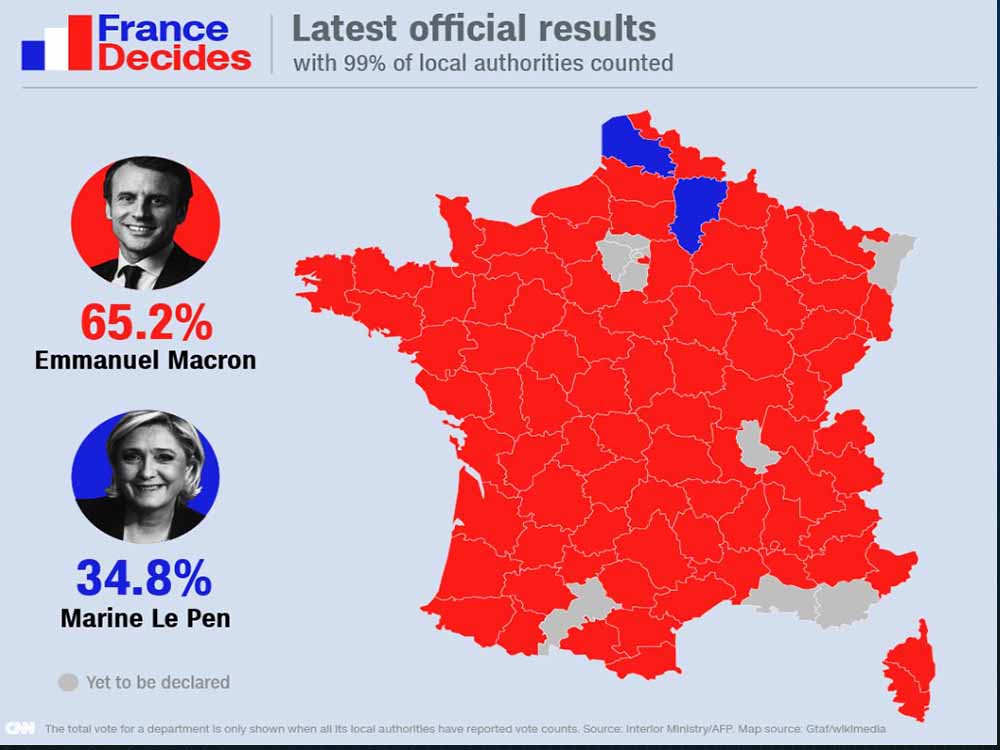The French Election of 2017 – A Turning Point in French Politics
The French presidential election of 2017 was a pivotal moment in French politics that captured global attention. It featured a diverse field of candidates, a wave of populist sentiment, and a consequential runoff that ultimately determined the direction of France’s domestic and international policies.
Candidates and the First Round
The election took place in two rounds, with the first round held on April 23, 2017. A total of 11 candidates competed for the presidency, representing a broad spectrum of political ideologies. The frontrunners included Marine Le Pen of the far-right National Front, Emmanuel Macron of the centrist En Marche! party, François Fillon of the center-right Republicans, and Jean-Luc Mélenchon of the far-left France Insoumise.
Emmanuel Macron and Marine Le Pen emerged as the top two candidates in the first round, with Macron securing 24.01% of the vote and Le Pen receiving 21.30%. The other candidates, including Fillon and Mélenchon, were eliminated from the race.
The Runoff and Macron’s Victory
The second round of the election, held on May 7, 2017, pitted Emmanuel Macron against Marine Le Pen in a runoff. The choice between the two candidates was symbolic of the broader political divide in France, with Macron representing a pro-European centrist stance and Le Pen advocating for nationalism and Euroscepticism.
Emmanuel Macron emerged victorious in the second round, securing 66.1% of the vote to Marine Le Pen’s 33.9%. His victory marked a significant departure from traditional French politics, as Macron was a relative newcomer without the backing of a major political party.
Macron’s Presidency and Reforms
Emmanuel Macron’s election ushered in a period of reform and change in France. His presidency was characterized by a series of policy initiatives aimed at revitalizing the French economy, liberalizing labor laws, and reforming the pension system. Macron also sought to strengthen France’s position within the European Union and played a key role in shaping EU policy on issues such as immigration and climate change.
Macron’s pro-European stance and commitment to global cooperation were evident in his handling of international affairs. He played a prominent role in diplomatic efforts, particularly in addressing conflicts in the Middle East and North Africa. His presidency was marked by a more assertive French foreign policy on the global stage.
Impact and Legacy
The French election of 2017 had a profound impact on the political landscape in France and Europe. Macron’s victory represented a rejection of far-right populism and a reaffirmation of France’s commitment to the European project. His presidency marked a shift away from the traditional left-right divide in French politics, as he positioned himself as a centrist reformer.
The reforms initiated during Macron’s presidency were met with both support and opposition, sparking protests and strikes. Nevertheless, they signaled a significant departure from the status quo and were seen as an attempt to address longstanding economic and social challenges in France.
On the international stage, Macron emerged as a prominent European leader and a key player in global affairs. His efforts to strengthen the European Union’s role in the world and address pressing global issues were met with both praise and criticism.
In retrospect, the French election of 2017 will be remembered as a turning point in French politics, with far-reaching implications for the country’s domestic policies, its role in Europe, and its influence on the world stage.











